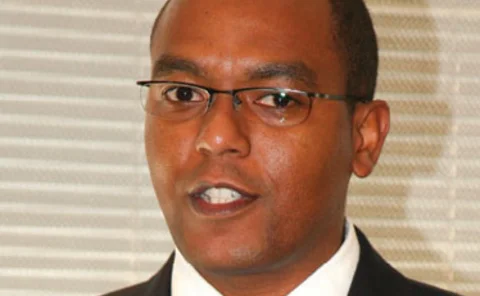International Monetary Fund (IMF)
IMF: post-Volcker monetary policy effective
Fund study find monetary policy has had just as much impact on output in the United States post-Volcker
DSK: surplus countries can rebalance growth
IMF managing director Dominique Strauss-Kahn says addressing global imbalances requires shift in surplus countries’ growth drivers
IMF programme helped Iceland’s finances: Guðmundsson
Central Bank of Iceland governor Már Guðmundsson says gross foreign exchange reserves in much better shape after IMF programme
G20 agrees historic IMF power shift
G20 governors and finance ministers agree to boost quotas, voting power of leading emerging market economies; Fund managing director Dominique Strauss-Kahn heralds end of legitimacy debate
IMF: international business cycles are US-led
Fund study finds US financial shocks drive international business cycles
National Bank of Cambodia - Annual Report 2009
National Bank of Cambodia’s Annual Report for 2009 says southeast Asian economy expected to return to growth this year
IMF’s Portugal identifies key information gaps
IMF deputy managing director Murilo Portugal lays out areas for improvement in filling information gaps
IMF: tax hikes increase success of austerity measures
Fund study shows tax rises in addition to spending cuts help reduce public debts more effectively
King demands collaboration
Bank of England governor Mervyn King says countries must reach collective solution over global imbalances or risk crippling the global economy through protectionist policies
RBI: external debts in India rising
Reserve Bank of India Monthly Bulletin shows external debts increased over the second quarter of 2010
IMF: Turkish banks vulnerable to monetary shocks
Fund study shows monetary policy channels in Turkey are severely disrupted when policy is tightened
Take more proactive role in macroprudential policy, DSK tells Asia
IMF managing director Dominique Strauss-Kahn says emerging markets should lead by example and complement strong recovery with sound macroprudential policies
US Treasury stalls on decision to name China ‘manipulator’
US Treasury says it will delay publication of report on exchange rates until after G20 gathering in Seoul
IMF: currency crises studies inaccurate
Fund research finds earlier studies on currency crises fail to identify volatile market fundamentals
IMF on luck and labour markets
Evidence from cricket shows a good first job has persistent positive impact on long-term career outcome, Fund study says
ECB's Constâncio: grant CCPs access to central bank liquidity
European Central Bank's Vítor Constâncio says central counterparties should get access to central bank liquidity so long as they're regulated
IMF/ World Bank meetings: lack of resolution regimes a key concern
Cross-border resolution regime deemed crucial by officials and bankers, but many sceptical progress can be made
Shirakawa flags limits of monetary policy
Bank of Japan governor says loose monetary policy is a necessary condition for recovery, but its efficacy is limited and may have unintended consequences
DSK expects quota reform in 'days, weeks'
IMF managing director Dominique Strauss-Kahn says members close to reaching agreement on quota reform
Vietnam proposes lifting gold ban to stem inflation
State Bank of Vietnam head of foreign exchange Nguyen Quang Huy says restrictions on gold imports may be lifted if domestic prices are unsustainable; move could help contain inflation
Angola appoints new governor
Commercial bank head José de Lima Massano joins National Bank of Angola following government reshuffle
Recovery has lost steam and risks remain high, IMF warns
IMF's latest financial stability report strikes a cautionary note about the stalled economic recovery
IMF: Gulf bank balance sheets severely impaired by economic downturn
Fund study finds link between economic conditions in Gulf states and banks’ nonperforming loans in region
IMF: low income countries lack proper monetary policy framework
Fund study shows monetary transmission mechanism in low-income countries is less effective due to institutional deficiencies










